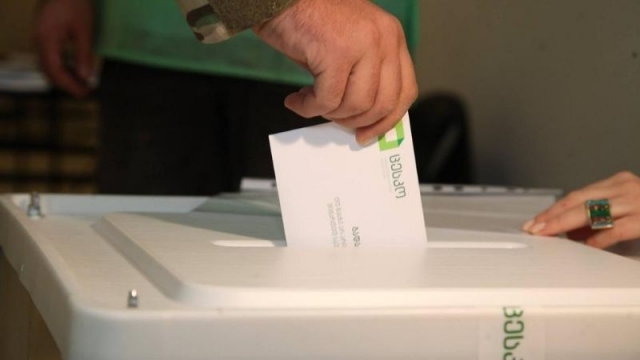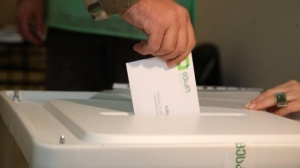Survey: How Georgian Media Covers the Pre-Election Period
Election coverage has become more diverse in recent years, but analytical depth is lacking and some outlets resort to gender stereotypes. These are some of the findings released today by the European Union (EU) and the United Nations Development Programme (UNDP) from the first 11 weeks of monitoring of mass media coverage of the upcoming parliamentary elections.
The monitoring is implemented by UNDP in partnership with three Georgian civil society organizations: the Georgian Charter of Journalistic Ethics, Internews Georgia and CRRC-Georgia. It covers 43 different media outlets, including 12 television stations, 10 radio stations, 8 print newspapers and 13 online editions. It also looks into the ways that Georgian media organizations connect with their readers on Facebook, analyzing what kind of electoral news gets most of the social media outreach, including through the Facebook pages associated with political parties, officials and politicians. A separate report prepared by CRRC-Georgia examines how Georgian television stations are covering foreign influence on Georgian electoral processes.
Media coverage of the Georgian political landscape has expanded to cover a wider range of political parties and actors than in past elections. However, the monitoring also showed that media coverage is largely shaped by the political agendas of the contending forces, focusing on only a few issues and failing to provide in-depth information on topics of potential public interest.
The interim reports released today cover 11 weeks of the pre-election period, from 15 June through 31 August.
“As Georgia moves forward in reforming its electoral system, professional and diverse media reporting is critical to help voters make informed choices,” said EU Ambassador Carl Hartzell. “EU support for media monitoring reflects our commitment to strengthening democracy in Georgia."
“UNDP has been closely observing the media landscape in Georgia for a decade now,” said UNDP Head Louisa Vinton. “We are pleased to see that media professionalism and diversity have improved in recent years. We hope in the future to see more analytical coverage of electoral programs and issues that matter to voters.”
Unverified information sources and discriminatory language remain an issue in print press, whereas abusive and discriminatory language is used rarely in online media. Gender stereotypes are noted in all types of media, except for radio. Online editions still fail to differentiate clearly between paid and editorial content and rarely offer their readers a critical analysis of the electoral process. TV stations lead in sharing their news through social networks, reaching much wider audiences than other sectors.
All TV stations are covering foreign actors in the context of Georgian elections, often providing controversial assessments of their influence. Most of the air time is devoted to the Russian Federation and the United States.
Election media monitoring will continue through the end of the current electoral cycle. Final reports will be available at year-end. Interim reports will be published on the website http://www.mediamonitor.ge/












